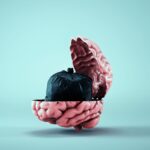A new book urges readers to put down their smartphones and prioritize “real intelligence” through habits like napping and memory exercises.
Summary: A Canadian academic argues that nurturing “real intelligence” (RI) through habits like afternoon naps and memory exercises is more beneficial for brain health and reducing dementia risk than relying on artificial intelligence (AI) and smartphones. In his book, the professor emphasizes the superior capabilities of the human brain and the importance of maintaining healthy habits for long-term cognitive health.
Key Takeaways:
- Real Intelligence Over AI: The book advocates for prioritizing “real intelligence” through brain exercises and daily habits over reliance on AI and smartphones.
- Brain Health Practices: Simple daily habits such as taking afternoon naps, engaging in memory workouts, and reducing smartphone usage can enhance brain function and longevity, the author writes.
- Human Brain Superiority: Despite advances in AI, the human brain remains unmatched in capacity, storage, longevity, and efficiency, according to the author of the book, which underscores the importance of maintaining and nurturing this asset through healthy lifestyle choices.
People can reduce their risk of age-related dementia by exercising their brains properly—through habits like afternoon naps and memory “workouts”—instead of Googling, according to a Canadian academic.
Professor Mohamed I. Elmasry, PhD, of the University of Waterloo, says these simple daily habits in place or reaching for a smartphone can increase the odds of healthy aging.
His new book, iMind: Artificial and Real Intelligence (with a foreword by Canadian cell biologist Aileen Burford-Mason, PhD), says the focus has shifted too far away from RI (natural or real) intelligence in favor of AI (machine or artificial) intelligence. Elmasry instead calls us to nurture our human mind which, like smartphones, has “hardware,” “software,” and “apps” but is many times more powerful—and will last much longer with the right care.
The Inspiration Behind iMind
Elmasry, an internationally recognized expert in microchip design and AI, was inspired to write the book after the death of his brother-in-law from Alzheimer’s and others very close to him, including his mother, from other forms of dementia.
Although he says that smart devices are “getting smarter all the time,” he argues in iMind that none comes close to “duplicating the capacity, storage, longevity, energy efficiency, or self-healing capabilities of the original human brain-mind.”
“The useful life expectancy for current smartphones is around 10 years, while a healthy brain-mind inside a healthy human body can live for 100 years or longer,” he writes. “Your brain-mind is the highest-value asset you have, or will ever have. Increase its potential and longevity by caring for it early in life, keeping it and your body healthy so it can continue to develop.
Developing Real Intelligence Over AI
He continues in iMind, “Humans can intentionally develop and test their memories by playing ‘brain games,’ or performing daily brain exercises. You can’t exercise your smartphone’s memory to make it last longer or encourage it to perform at a higher level.”
In iMind: Artificial and Real Intelligence Elmasry shares an anecdote about his grandchildren having to use the search engine on their smartphones to name Cuba’s capital—they had just spent a week in the country with their parents.
The story illustrates how young people have come to rely on AI smartphone apps instead of using their real intelligence (RI), he says, adding, “A healthy memory goes hand-in-hand with real intelligence. Our memory simply can’t reach its full potential without RI.”
Comparing AI and Human Intelligence
Published by Routledge, iMind: Artificial and Real Intelligence includes background on the history of microchip design, machine learning, and AI and their role in smartphones and other technology.
The book also explains how both AI and human intelligence really wor, and how brain function links the mind and memory. It compares the human mind and brain function with that of smartphones, ChatGPT, and other AI-based systems.
Drawing on existing research, iMind aims to narrow the knowledge gap between real and artificial intelligence, to address the current controversy around AI, and to inspire researchers to find new treatments for Alzheimer’s, other neurodegenerative conditions, and cancer.
Practical Tips for Boosting Brain Power
It argues that current or even planned AI cannot match the capabilities of the human brain-mind for speed, accuracy, storage capacity, and other functions. Healthy aging, Elmasry notes, is as important as climate change but doesn’t attract a fraction of the publicity.
He calls for policymakers to adopt a series of key reforms to promote healthy aging. Among such changes, he suggests that bingo halls could transition from their sedentary entertainment function to become active and stimulating learning centers.
As well as napping to refresh our memories and other brain and body functions, he also outlines a series of practical tips to boost brain power and enhance our RI.
These include building up “associative” memory—the brain’s “dictionary of meaning” where it attaches new information to what it already knows. Try reading a book aloud, using all of your senses instead of going on autopilot, and turning daily encounters into fully lived experiences.
Other techniques include integrating a day for true rest into the week, reviewing your lifestyle as early as your 20s or 30s, adopting a healthy diet, and eliminating or radically moderating alcohol consumption to reduce the risk of dementia.
Photo 166481012 © Katie Nesling | Dreamstime.com









